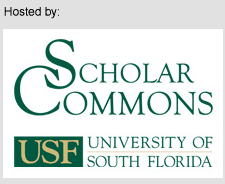Author Biography
Alisha Nguyen is an early childhood educator and scholar activist. Her Ph.D. is in Curriculum and Instruction with a specialization in Critical Perspectives on Schooling: Race, Class, Gender, & Disability from the Lynch School of Education & Human Development at Boston College. She is also a 2020 Rennebohm Fellow affiliated with the Center of Human Rights & International Justice at Boston College.
Alisha Nguyen's areas of expertise include anti-bias/anti-racist education, bilingual education, language & literacy development, and family engagement. Her scholarship mostly focuses on the intersectionality of language, power, race, class, and gender across educational settings and aims to foster racial, gender, and linguistic justice. Alisha Nguyen is particularly interested in conducting participatory action research with diverse families and communities. She has been working closely with immigrant families, grassroots and community-based organizations, and school districts to advocate for anti-racist education, bilingual education, and equitable family engagement.
Abstract
This practitioner inquiry provides a critical reflection of my teaching practices as a multilingual immigrant early childhood educator who attempted to build partnerships with immigrant families during the COVID-19 pandemic. This partnership allowed me to collaborate with 39 caregivers and 42 emergent bilingual children from the Metro and Greater Boston Areas to design and implement a family engagement and remote learning program called Home Connection. Using culturally sustaining pedagogy to guide curriculum design, pedagogy, and family engagement, this paper presents what I have sought to sustain while teaching in the Home Connection program. The findings reveal that through the Home Connection program, I have learned to: (i) affirm the diversity and pluralism in my students’ learning interests, lived experiences, identities, and home lives, (ii) foster intergenerational connections and collective learning, (iii) recognize embodied learning through multiple spaces across family homes, and most importantly, I have learned to (iv) embrace healing-centered teaching and learning that helps pave the path for collective healing within this learning community.
Recommended Citation
Nguyen, Alisha
(2024)
"Building Culturally Sustaining Learning Spaces with Immigrant Families and Young Bilingual Children During Pandemic Remote Learning,"
Journal of Practitioner Research: Vol. 9
:
Iss.
1
, Article 2.
Available at:
https://digitalcommons.usf.edu/jpr/vol9/iss1/2
